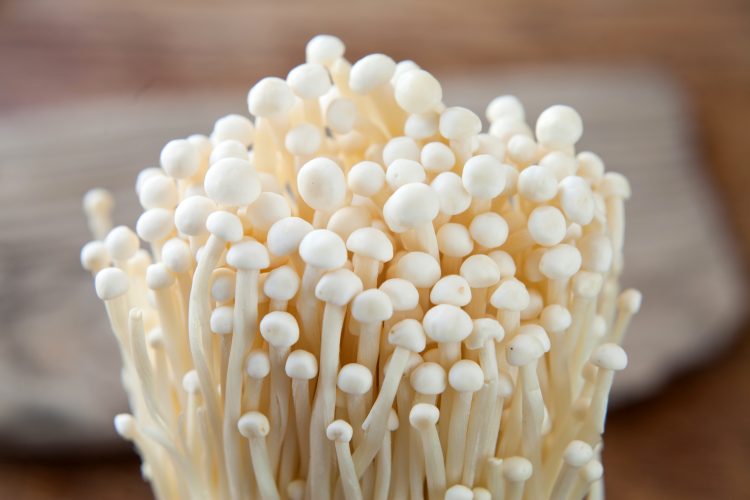The problems of dietary simplification
- Like
- Digg
- Del
- Tumblr
- VKontakte
- Buffer
- Love This
- Odnoklassniki
- Meneame
- Blogger
- Amazon
- Yahoo Mail
- Gmail
- AOL
- Newsvine
- HackerNews
- Evernote
- MySpace
- Mail.ru
- Viadeo
- Line
- Comments
- Yummly
- SMS
- Viber
- Telegram
- Subscribe
- Skype
- Facebook Messenger
- Kakao
- LiveJournal
- Yammer
- Edgar
- Fintel
- Mix
- Instapaper
- Copy Link
Posted: 18 December 2020 | Bethan Grylls (New Food) | No comments yet
New Food’s Editor looks at the issue of dietary simplification and how a lack of biodiversity is impacting both health and food security.


What did you eat for last night’s dinner? What about the night before, last week or last month…? Was it varied or do similarities crop up? I wouldn’t be surprised if there was a pattern. We consume only a tiny proportion of the variety of food available to us. In fact, according to Unilever’s Executive Vice President of Global Food, 75 percent of the global food supply is comprised of a mere 12 crops and five animal species (read more in Issue 6 2020, page 44).
So what? Maybe you really like carrots, and they’re good for you, right? Well, yes; but this monotony is having a greater impact than you might think. Or maybe you know this; perhaps I’m preaching to the converted and you’re working with a forward-thinking brand, making strides in promoting biodiversity. Either way, it is clear that more must be done to promote the issue to consumers and explain its importance.
Whether you’ve brushed up on your biodiversity lingo or not, I’ll give a brief overview of the effects of dietary simplification. The first issue to address here is that a limited diet restricts our nutrient intake. Nutrient content between breeds and cultivars, etc, of plants can be so different. Sweet potato cultivars can vary in their carotenoid content by a factor of 200+, for example.1 So, just having one type over another can make the difference between micronutrient deficiency and adequacy. We cannot rely on a select variety of ingredients because their nutrition profiles are not ‘standard’.
It’s also worth noting that a lack of crop diversity isn’t helpful for food security or the environment either. If you’re an avid reader of New Food (one should hope!), you may recall my Welcome in Issue 1 2020, which stressed the need for moderation. Personally, I don’t believe full-blown veganism is the answer to sustainability, but certainly reducing our meat intake seems a sensible course of action to help revitalise our planet. As we approach the end of the year, I re-emphasise my previous point: moderation is key – and this applies to both meat and crops. No good can come from overeating and overproducing plants.
As much as 75 percent of the genetic plant diversity in agriculture has been lost since 1900.2 To put that into perspective: Thailand once cultivated more than 16,000 plant varieties, today it’s 37.1 If we continue on this path, we will only see further decline in biodiversity. Monoculture farming will have severe repercussions for food security because it depletes nutrients and makes soil susceptible to pests and pathogens. The result is over reliance on fertilisers and pesticides, which, if used inappropriately, can have detrimental effects on wildlife and end up in our water supplies and, consequently, food.3
“Most of us might believe it’s our energy or transport choices that cause the most serious environmental damage. In fact, it’s our food system that creates the biggest impact,” according to WWF-UK’s Executive Director for Advocacy, Dr Tony Juniper.3
To ensure we can feed the future population – 10 billion by 2050 – we need to transform our food system. Knorr and partners, including WWF, has made one suggestion (or 50) with the publication of its future 50 foods project. For this, they identified 50 foods we “should eat more of”, selecting them based on their nutritional qualities and lower environmental impact. According to the official report, these crops are also tasty and affordable – and for the ones which aren’t widely accessible, it’s making efforts to change that. Nice one.
References
- www.fao.org/fileadmin/templates/food_composition/documents/upload/Interodocumento.pdf
- www.fao.org/3/y5609e/y5609e02.htm#bm2
- www.wwf.org.uk/sites/default/files/2019-02/Knorr_Future_50_Report_FINAL_Online.pdf
Related topics
Food Security, Health & Nutrition, Ingredients, Plant based, Proteins & alternative proteins, Sustainability
Related organisations
Food and Agricultural Organization of the United Nations (FAO), Knorr, Unilever, World Wide Fund for Nature (WWF)









